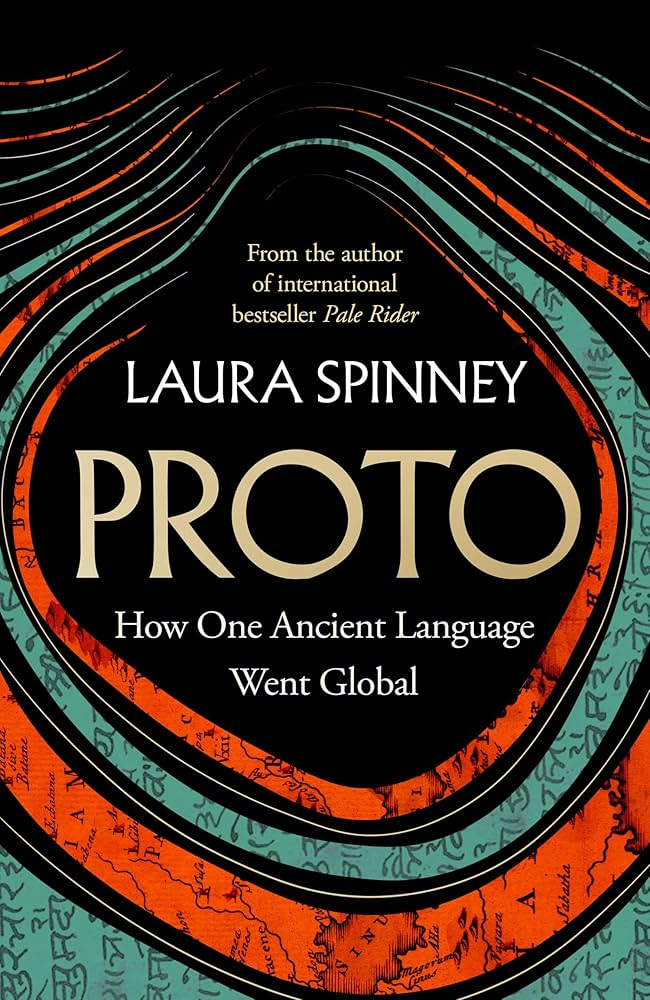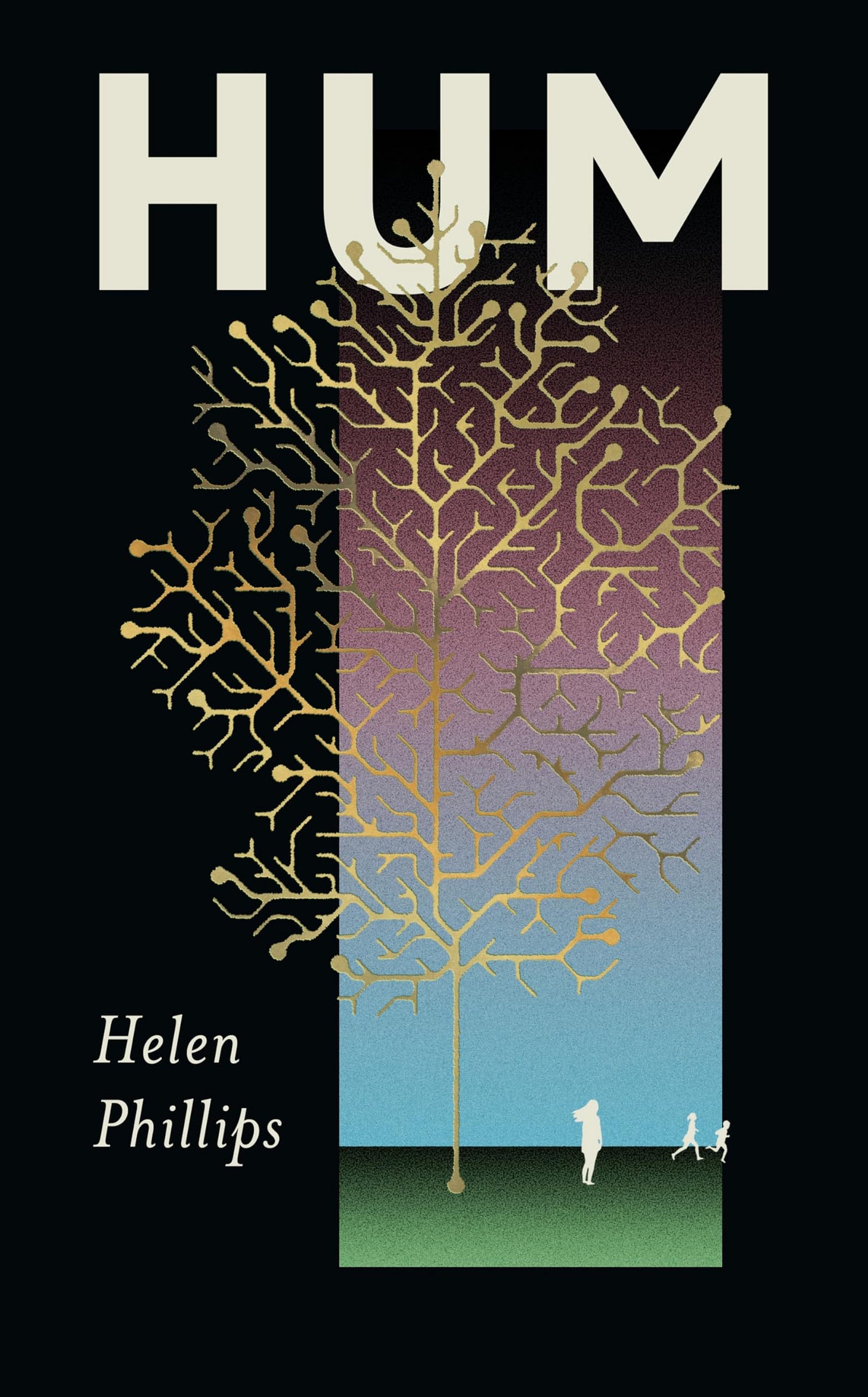Spark, Proto, Hum.
Three new or forthcoming books.
Electric Spark, by Frances Wilson
She was aware from the start of ‘a definite “something beyond myself ” ’, an ‘access to knowledge that I couldn’t possibly have gained through normal channels’, including a sixth ‘literary’ sense possessed only by certain readers and critics. The image of herself as a wireless set took hold when she was five and her brother built one from a clump of metal and a whisker of wire; soon afterwards Muriel went to a matinee show with her aunt Gertie where a performer called Florrie Forde ‘reclined glittering in the middle of the stage beside an enormous wireless set with multi-coloured, illuminated “valves”, which looked like light bulbs’. Resting on one elbow while twiddling the knobs, Florrie Ford sang a song called ‘Dream, Daddy’. There is a moment in every childhood, said Graham Greene, when the door opens and lets the future in: Spark remembered this performance because the woman controlling the radio waves was the artist she would one day become.
This is from the new biography of Muriel Spark, forthcoming in July I think, which is excellent. I will be reviewing Electric Spark closer to the time.
Proto, by Laura Spinney
*ghostis might have been the unspoken rule that allowed speakers of Proto-Indo-European to pass safely through each other's territory. It would have become more important over time, as what started out as a small, tightly knit community grew and dispersed. Some claim that *ghostis contains the echo of another word, *ghes, meaning ‘to eat’. If they are right, then from the beginning the proper way to receive a guest may have been to lay on a feast. At the feast, where they drank beverages made from fermented milk, plants or honey (*medhu, ‘mead’), the guests listened as a bard praised the generous host (*ghosti-potis, literally the ‘lord of guests’). Bards held a hallowed status in Indo-European society. They could make or break reputations, build a person up with blandishments or slam him down with satire. And for Indo-Europeans, reputation was everything. A warrior sought fame on the battlefield, because with fame came immortality. The same phrase, ‘fame imperishable’, appears in The Iliad (kléos áphthiton) and the Rig Veda (śrávaḥ ákṣitam), suggesting that the concept was familiar to the speakers of Proto-Indo-European too.
From a new book that tells the story of the spread the group of Proto-Indo-European, which is the of a family of languages now spoken by half the world. Coming in April, thoroughly interesting. I will also be reviewing this closer to the time.
Hum, by Helen Philips
A 2024 speculative novel about a medium-term future in which AI robots (hums) have become a major part of the economy. There is also a much worse level of environmental damage than we currently live with (air pollution is higher in cities, it is hard to stay away from oil at the beach.) The main character has lost her job and undergoes experimental surgery to prevent the hums from being able to identify her (she has to give them her fingerprint to be identified). This gives her enough money to live for most of a year, and she organises a holiday for her family that they cannot afford. I shan’t say more about the plot. It is about the life of a family who are neither rich nor poor and what it is like for them to face the uncertainties of living in the age of AI. It covers parenting, loneliness, state surveillance, cancel culture, advertising.
Whether or not this is the intended lesson, one thing that the book presents very well is the fact that whatever complex mix of benefits and problems accrue to us from technological and social change, human anxiety persists. Indeed, human anxiety can become overwhelming whatever the real state of affairs. The book is not quite so doomerish as you might expect, though it is a dystopia. I especially liked the ending.
Comparing Hum to other recent “eco-anxiety mom lit”, Katy Waldman wrote in the New Yorker,
The vision of the future presented in “Hum” is less apocalyptic than some of these mothers fear. (The protagonist of Christine Smallwood’s “The Life of the Mind,” from 2021, imagines children clinging to a storm-tossed raft while they berate her for her inaction on carbon emissions.) The book’s chief interest is not the Armageddon hovering in the wings but the dehumanizing, anhedonic grind of May’s daily life, a constant battle against the temptations of consumption and technologically mediated distraction. In Phillips’s plausible dystopia, people rely on technology to compensate for ecological ruin; they bathe in the beauty of screens because they’ve made the physical world ugly.
These are familiar themes, but Hum is much more readable that the latest Houellebecq, for example. I don’t see that the future it presents as quite so plausible, at least on some dimensions, but it is surely right in some broad sense. There will be a lot more advertising, and we won’t like that very much. A pair of characters who essentially live offline made a cameo, and they would perhaps make an interesting topic for a novel too.
I read Hum in two sittings and enjoyed it.





Thanks for sharing. I have a background in linguistics, so a book about Proto-Indo-European (PIE) and its significance is of interest. It’s a topic not often addressed outside scholarly texts, so a book aimed at a wider audience is especially appealing.
What a delicious mix! Thanks. I will especially look forward to your review of the book on Muriel Spark.